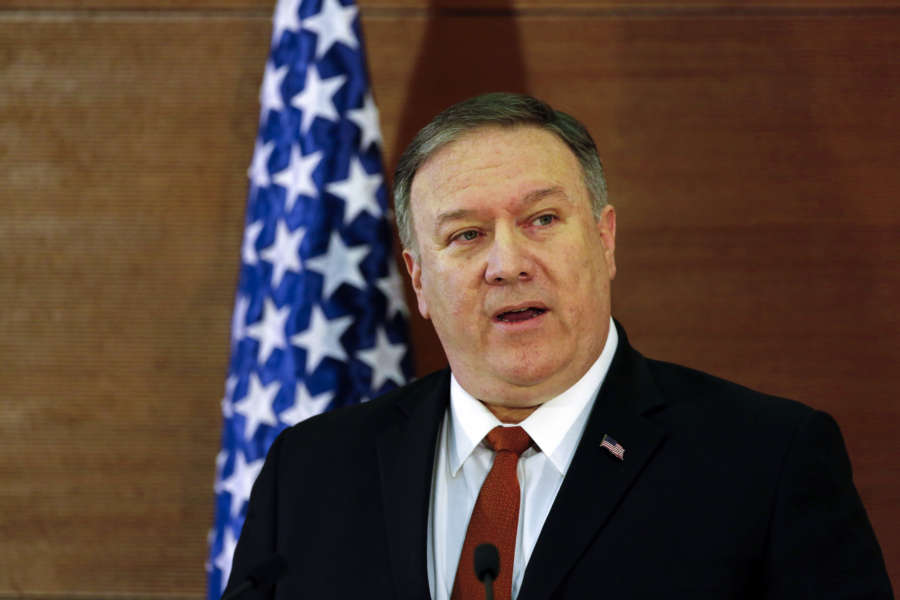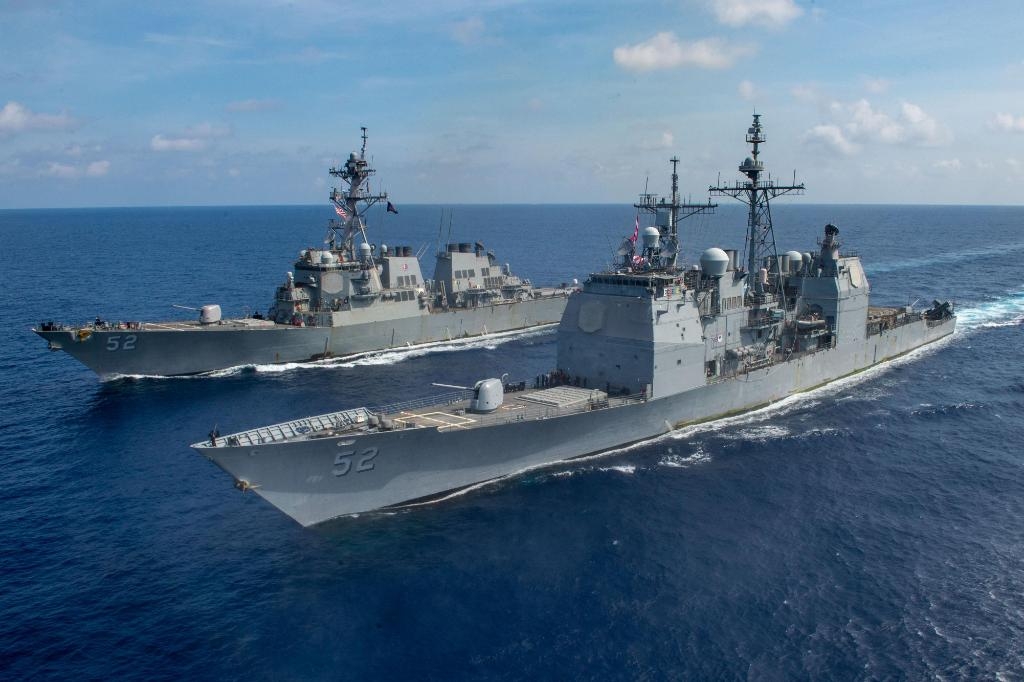
The US has imposed a visa ban on members of the Chinese Communist Party (CCP) regime, People’s Liberation Army (PLA) and some state-owned businesses responsible for the occupation and militarization of the disputed South China Sea.
In a statement issued by the State Department on Wednesday, Secretary of State Mike Pompeo said that from August 26 it has begun “imposing visa restrictions on People’s Republic of China (PRC) individuals responsible for, or complicit in, either the large-scale reclamation, construction, or militarization of disputed outposts in the South China Sea, or the PRC’s use of coercion against Southeast Asian claimants to inhibit their access to offshore resources”.
The visa restrictions effectively ban the entry of not only the members of the CCP regime, the PLA, but also private individuals and businesses of the PRC, complicit in the occupation of the South China Sea.
“These individuals will now be inadmissible into the United States, and their immediate family members may be subject to these visa restrictions as well,” the State Department said.
In addition, the US Department of Commerce has added 24 PRC state-owned enterprises to the Entity List, including several subsidiaries of the China Communications Construction Company (CCCC).
Since 2013, the PRC has used its state-owned enterprises to dredge and reclaim more than 3,000 acres on disputed features in the South China Sea, destabilizing the region, trampling on the sovereign rights of its neighbors, and causing untold environmental devastation, the US government said.
The CCCC, the State Department said, led the destructive dredging of the PRC’s South China Sea outposts and is also one of the leading contractors used by Beijing in its global ‘One Belt One Road’ strategy.

The US said that the CCCC and its subsidiaries have engaged in corruption, predatory financing, environmental destruction, and other abuses across the world.
“The PRC must not be allowed to use CCCC and other state-owned enterprises as weapons to impose an expansionist agenda,” Pompeo said in his statement.
The US, he warned, will act until Washington was convinced that Beijing discontinue its coercive behaviour in the South China Sea.
“We will continue to stand with allies and partners in resisting this destabilizing activity,” Pompeo said.
The US supports a free and open South China Sea, he said, adding that Washington respects the sovereign rights of all nations, regardless of size, and seeks to preserve peace and uphold freedom of the seas in a manner consistent with the international law.
“In July, I announced an updated policy regarding Beijing’s unlawful maritime claims in the South China Sea and emphasized that the US was prepared to take firm action to oppose Beijing’s campaign of bullying,” Pompeo added.
China fired missiles
Just before the US imposed a visa ban on Chinese government members in response to the militarization of the South China Sea, Beijing had fired two missiles, including an ‘aircraft-carrier killer’, into the disputed sea.

As per a South China Morning Post (SCMP) report, China fired one intermediate-range ballistic missile, DF-26B, from Qinghai province and another medium-range ballistic missile, DF-21D, from Zhejiang on Wednesday into the sea, provoking the US to take an unprecedented action against the Chinese Communist Party (CCP) regime, People’s Liberation Army (PLA) and their businesses.
The DF-26B missile is capable of smashing moving targets at the sea, according to the Global Times, the mouthpiece of the CCP.
The missile’s destruction capabilities have given it the name ‘aircraft-carrier killer’.
China’s Defence Ministry spokesperson, Senior Colonel Wu Qian, has claimed that the missile can carry conventional or nuclear warheads and is capable of launching precision strikes against targets on land and sea.
The missile has a range of 4,500 km, which effectively means that it can reach the West Pacific and the Indian Ocean, as well as American facilities in Guam, the British island of Diego Garcia and even the Australian city of Darwin.
The DF-21 is also an anti-ship ballistic missile system, meant for destroying moving ships at sea.
The CCP justified the firing of the two missiles in the area between Hainan province and the disputed Paracel Islands, by arguing that it was in response to the US U-2 spy plane flying in the Chinese-designated “no-fly zone” on Tuesday when China was conducting a live-fire naval drill conducted in the Bohai Sea off its north coast.